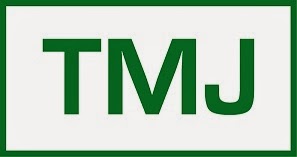He makes a pretty good case about how any average person can find value and benefit financially. Basically, he explains the weaknesses of Wall Street, and how you can minimize mistakes by understanding the weaknesses of the whole system. Understanding the bigger picture and how is can be seen with value driven eyes, is a skill that can be learned. That may sound difficult, but this is a very easy to read book. Any average investor with discipline will learn and benefit, plain and simple.
One favorite easy to understand example is with art. If you go to a garage sale or second hand store and see a painting, where is the value? Some would only look at the price of the painting and say the artist is not known and not worth the price, but what about the frame? If the frame was carved wood and worth US$500 but the price of the painting in its frame was selling for US$100, there is great value there. This is the mindset that the author explains in so many other ways so well.
 He fills his book with very solid simple investment guidelines that help you make higher than average returns. In many ways, he is teaching basic investing, but also how to filter out the market noise that lowers basic returns. In regard to portfolio diversification, he makes an interesting case for the need for only 8 stocks. He gives good evidence that shows how more stock picks, 9, 10 or more does not really help diversify your portfolio at an equal cost to the upside lost. Diversification mainly helps investors without the time to do proper research of their own. Too often investors worry about how much they may lose with the total value of their portfolio. The author makes a good case about how much an investor can lose out in upside performance with too many mediocre positions that limit total value performance in any portfolio. It becomes very clear quickly how less is more, and more profitable too.
He fills his book with very solid simple investment guidelines that help you make higher than average returns. In many ways, he is teaching basic investing, but also how to filter out the market noise that lowers basic returns. In regard to portfolio diversification, he makes an interesting case for the need for only 8 stocks. He gives good evidence that shows how more stock picks, 9, 10 or more does not really help diversify your portfolio at an equal cost to the upside lost. Diversification mainly helps investors without the time to do proper research of their own. Too often investors worry about how much they may lose with the total value of their portfolio. The author makes a good case about how much an investor can lose out in upside performance with too many mediocre positions that limit total value performance in any portfolio. It becomes very clear quickly how less is more, and more profitable too.The great billionaire investor Warren Buffett, has many overlapping views with Joel Greenblatt. Both think that success is better found with 5-8 great ideas are better than 15-20 mediocre ideas overall. One of the best points explained is how size both helps and hinders performance. If you have a large amount of capital, great choices that are small in size do not help your total performance very much. Both Warren and Joel, feel that it is better to invest with smaller amounts more actively, than a huge amount in size less often.
The Top 3 Takeaways from this book that impact any reader are:
1) There is a lot to learn about picking stocks. You are better off with 8 great ideas than 20 mediocre ones. There are no shortcuts to success, you must do your own research(DYOR).
2) The timing of stock investments can be in your favor as a true investor over time, unlike a short term day trader. These are different skill sets that need different kinds of stocks.
3) Input from direct research cannot be replaced. There is value everywhere if you learn how to look for it and how to value it properly. Hard work, quality experience and persistence from constant never ending research always finds value over time.
There are many great examples of great investment lessons to learn that apply not only to stocks, but real estate, bonds or any other asset. The goal of the book is to help you have a solid nose for value, and recognize it when in front of you. His point is you can find great investments on your own and do not have to "pay experts" to tell you what to buy or when. There is no special secret that an average investor cannot learn. It is a skill that can be learned by many. The market tries to keep the basic rules private, but this book reveals all of the best basics that any investor really needs. A very thought provoking book, highly recommended!
Please visit us for our Friday Feature Review where TMJ Partners will review books, movies, conferences and anything else with a financial theme. Follow us now for our free weekly updates, just click here. Thank you for reading and learning more about how money is made in finance!
For more Buy-Side and Sell-Side roles in Asia-Pacific, contact our TMJ Partners Japan & Asia Finance team.
Tokyo Tokyo










